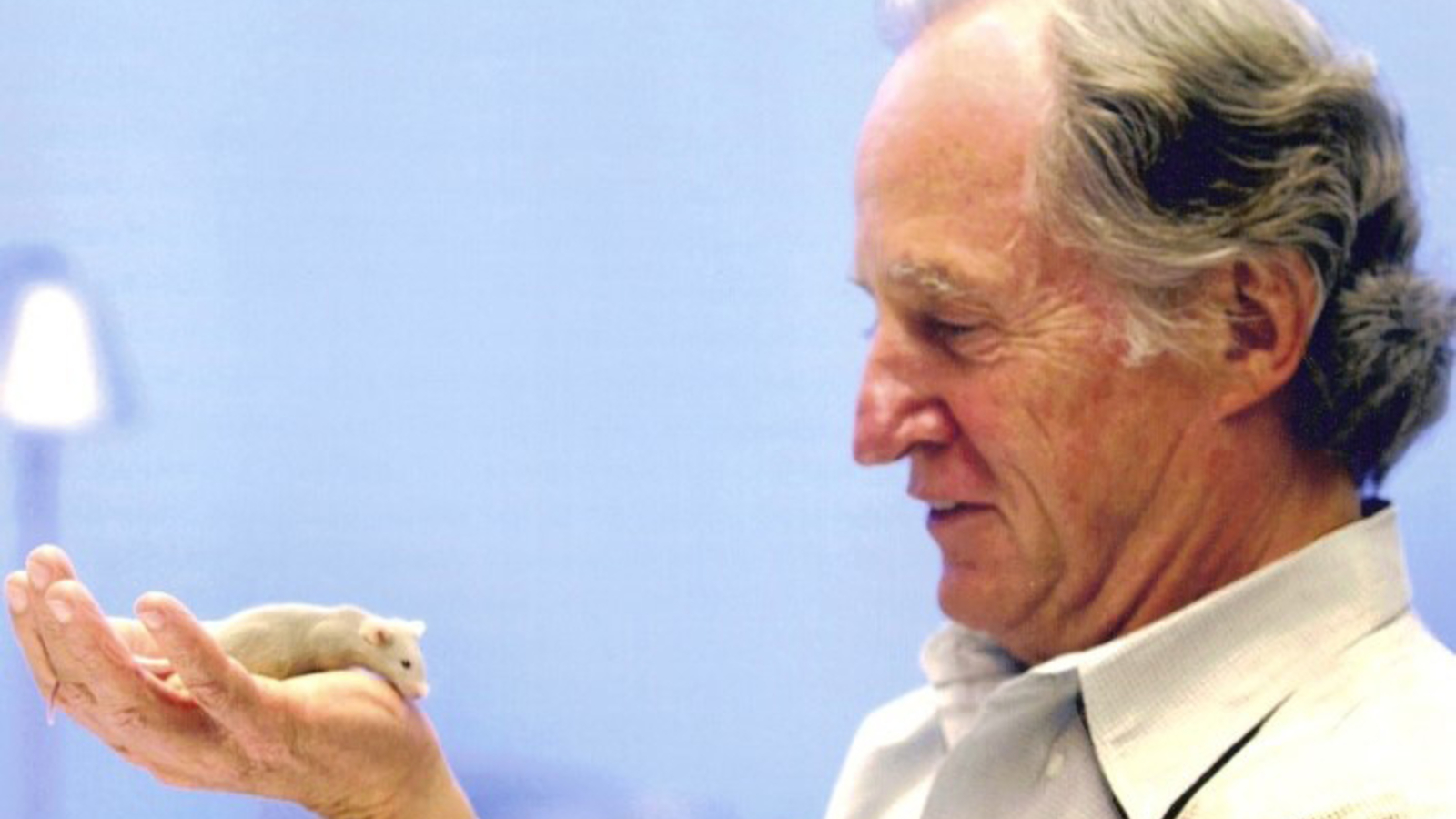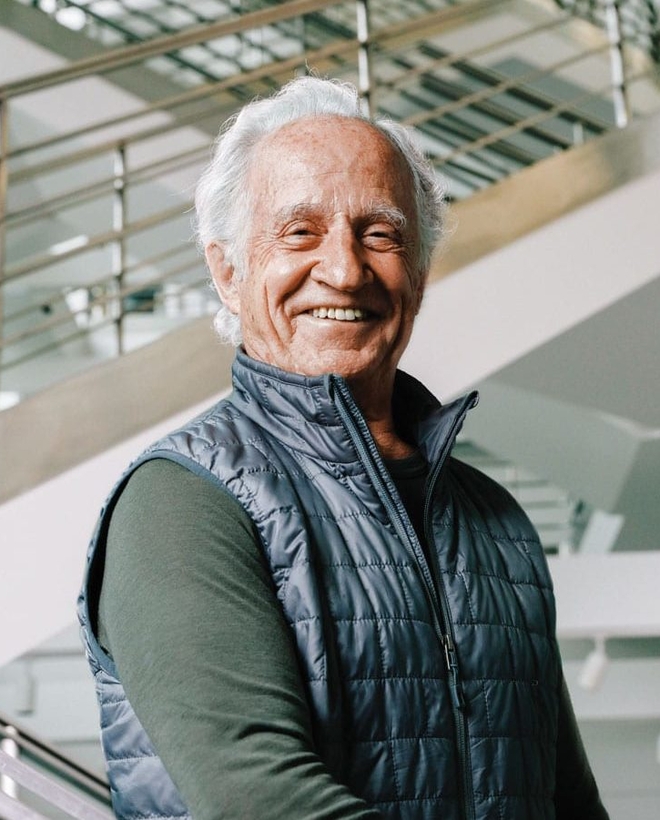Mario Capecchi


Mario Capecchi
Born in Verona to a mother who was taken to Dachau, you lived alone on the streets during the Holocaust from age four, scrounging for food, until, through a set of miraculous circumstances, you were brought to the United States. Without any formal schooling until you were nine, you rose to share the Nobel Prize in medicine for the development of gene targeting in mouse embryo stem cells, a discovery that has led to major advancements in human disease, drug development, and more. Inspiring scientist, whose life lessons teach us all and whose story exemplifies the triumph of the human spirit, we award you the degree of Doctor of Science.
Mario Capecchi, the Nobel Prize-winning molecular geneticist, is a professor of human genetics and of biology, adjunct professor of oncological sciences, and Howard Hughes Medical Institute investigator at the University of Utah. Known for his contributions to the development of “knockout” gene-targeting technology, which enables researchers to isolate specific genes and their functions, Capecchi uses experimental mouse models to study developmental biology, sarcomas, and to explore the basis for neuropsychiatric disorders. With his co-laureates, Oliver Smithies and Martin J. Evans, Capecchi has paved the way for breakthroughs in basic research, new therapeutic methods, and other biomedical advances.
From a childhood of extraordinary hardship, Capecchi forged a resilience to which he would come to attribute his successes in the laboratory. Born in Verona, Italy, on the eve of the Second World War, he went to live with a family of peasant farmers after his mother—a Bohemian poet who was raising him largely on her own—was arrested and imprisoned by Nazi officers. A year later Capecchi, just four years old, was left to his own resources, “sometimes living in the streets, sometimes joining gangs of other homeless children, sometimes living in orphanages, and most of the time being hungry,” as he later described in autobiographical reflections for the Nobel Foundation. Eventually, he was reunited with his mother and together they immigrated to the United States to live with family members who had settled in Pennsylvania. He earned his bachelor of science (in chemistry and physics) from Antioch College in 1961 and completed his Ph.D. (in biophysics) at Harvard University six years later. Capecchi’s undergraduate and graduate studies coincided with the advent of a new field—molecular biology—and at Harvard he found a mentor in Nobel Laureate James Watson, who had co-discovered the structure of DNA.
“We live in a fragile world of our making. You have no choice, if you want to continue as a species to survive, you will have to learn how to become far better caretakers. It is up to you now.”
Capecchi joined the faculty of Harvard Medical School but soon moved west, to Salt Lake City, to continue his career at the University of Utah. The perseverance he had cultivated as a young boy served him well through setbacks including an initial rejection by the National Institutes of Health for a grant to pursue his gene-targeting research. Today he participates in the Sarcoma Services Program at the university’s Huntsman Cancer Institute and is a member of its Nuclear Control of Cell Growth and Differentiation Program. He teaches courses in biochemistry, eukaryotic genetics, cell biology, developmental genetics, and molecular biology, and his research interests include analysis of early mouse development, neural development in mammals, gene therapy, and the production of murine models of human genetic diseases.
Among dozens of major honors over the past half-century, Capecchi has received the Alfred P. Sloan Jr. Prize for Outstanding Basic Science Contributions to Cancer Research (1994), the Kyoto Prize in Basic Sciences (1996), the National Medal of Science (2001), the Wolf Prize in Medicine (2002), and the American Association of Cancer Research Lifetime Achievement Award (2015). His Nobel Prize in Medicine (2007) recognizes Capecchi’s impact in “open[ing] the way to both new scientific understanding and new treatment methods” for human illnesses.
Capecchi and his wife, Laurie Fraser, live in Salt Lake County and are the parents of filmmaker and artist Misha Capecchi. Following the publicity surrounding his Nobel Prize, Capecchi’s family tree gained a new branch when he discovered a younger half-sister still living in Italy.